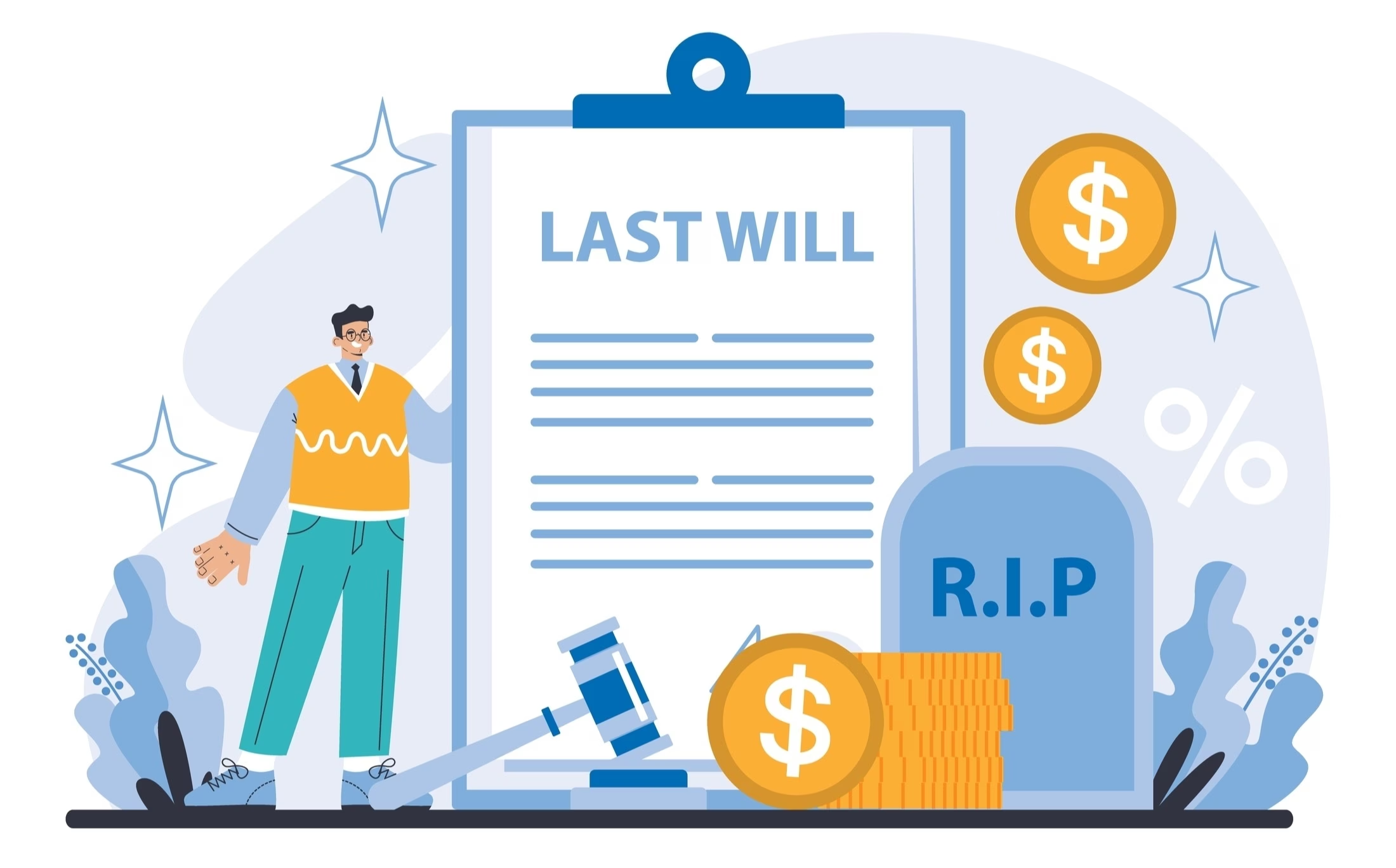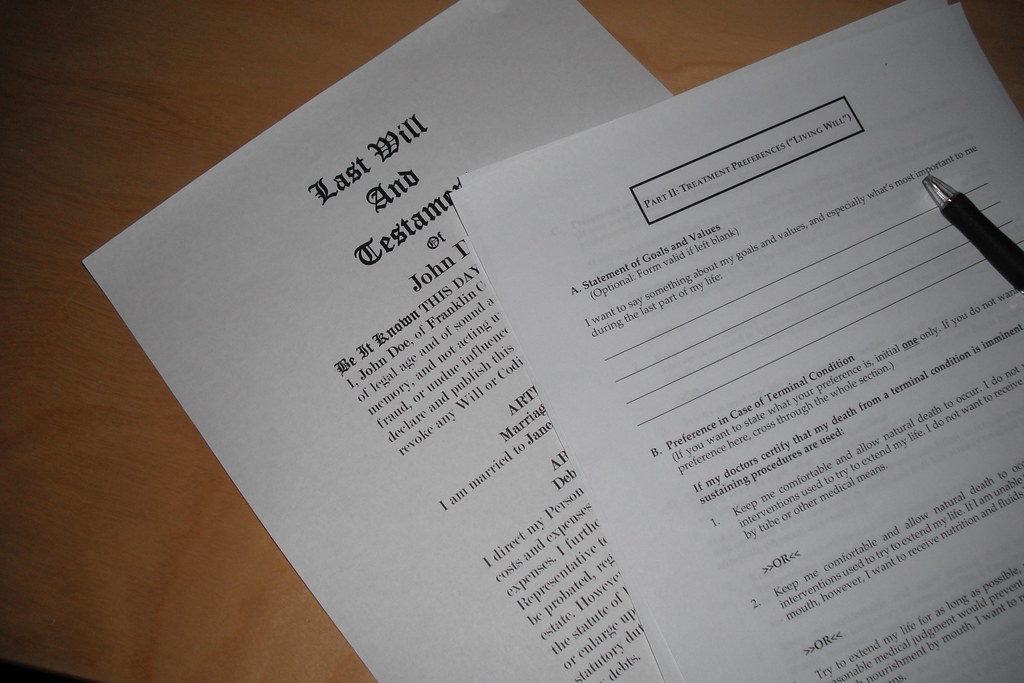
Having a Will is one of the most important things you can do for your loved ones. It provides a clear set of instructions for what you want to happen to your property and possessions after you die. But what happens in the event of dying without a Will? The law decides who gets what, and that might not be what you would have wanted. This blog will walk you through what happens in the UK when someone dies without a Will.
The First Steps
When someone dies, the first thing to do is to find their Will. The original document is needed, not a copy. The Will should name one or more people to be the executors. These are the people responsible for carrying out the wishes in the Will.
The executors need to get a death certificate and notify all the relevant organisations of the death, such as banks, building societies, and government departments. They also need to arrange the funeral. The Will may contain instructions about the funeral, such as whether the person wanted to be buried or cremated.
Applying for a Grant of Probate
In most cases when dying without a Will, the executors will need to apply for a Grant of Probate. This is a legal document that gives them the authority to deal with the deceased person's estate (their money, property, and possessions).
To get a Grant of Probate, the executors need to:
- Value the estate: This means getting a professional valuation of all the assets, such as property, savings, investments, and personal belongings. They also need to find out about any debts, such as a mortgage or outstanding bills.
- Pay Inheritance Tax: If the estate is worth more than a certain amount (currently £325,000 in the UK), Inheritance Tax may be due. The executors need to calculate how much is owed and pay it to HM Revenue and Customs (HMRC).
- Complete the probate application forms: These can be complicated, and many people choose to use a solicitor to help them.
- Send the application to the Probate Registry: The application Will be checked, and if everything is in order, the Grant of Probate will be issued.
It's important to note that a Grant of Probate is not always needed. For example, if the person who died had a small estate, or if they owned everything jointly with someone else, it may not be necessary.
Administering the Estate
Once the Grant of Probate has been issued, the executors can start the process of administering the estate. This involves:
- Closing bank accounts: the executors will need to show the Grant of Probate to the banks and building societies to close the deceased person's accounts.
- Selling property and other assets: the Will may say that certain assets should be sold, or the executors may need to sell them to pay off debts or to divide the estate between the beneficiaries.
- Paying off debts: any outstanding debts, such as a mortgage, loans, or credit card bills, must be paid from the estate before any money is given to the beneficiaries.
- Distributing the estate: once all the debts have been paid, the executors can distribute the remaining assets to the beneficiaries according to the instructions in the Will.
The executors have a legal duty to act in the best interests of the beneficiaries. They must keep detailed records of everything they do and be able to account for all the money that comes in and out of the estate.
What if Someone Contests the Will?
It is possible for someone to contest a Will, but they need to have legal grounds to do so. The most common grounds for contesting a Will are:
- The Will is not valid: for example, it was not signed or witnessed correctly.
- The person who made the Will was not of sound mind: this means they did not have the mental capacity to understand what they were doing when they made the Will.
- The person who made the Will was under undue influence: this means they were coerced or pressured into making the Will.
- The Will is fraudulent: for example, it was forged.
Contesting a Will can be a long and expensive process, and there is no guarantee of success. If you are thinking of contesting a Will, you should get legal advice from a solicitor who specialises in this area of law.
The Importance of Keeping Your Will Updated
It is important to keep your Will updated to reflect any changes in your circumstances. You should review your Will every few years, or after any major life event, such as:
- getting married or entering into a civil partnership;
- getting divorced or dissolving a civil partnership;
- having children;
- buying a new property; or
- a major change in your financial circumstances.
If you do not update your Will, it may no longer reflect your wishes. For example, if you get married, your old Will is automatically revoked, and if you die without making a new one, you will be treated as if you had died intestate.
Conclusion
Dying with a Will in place provides peace of mind for you and your loved ones. It ensures that your wishes are carried out and that your property and possessions go to the people you want them to. The process of administering an estate can be complex, but with a clear and valid Will, it can be made much smoother for those you leave behind.

Table of content
Recent Posts
Lasting Power of Attorney (LPA) – 2025 Fee Increase Update
The UK government has confirmed that the fees for [...]
Mohammed Hijab Defamation Case – His Solicitors Perspective
In the pursuit of justice, the path is not always [...]
Dying Without A Will – Who Can Inherit Your Estate?
Having a Will is one of the most important things [...]





